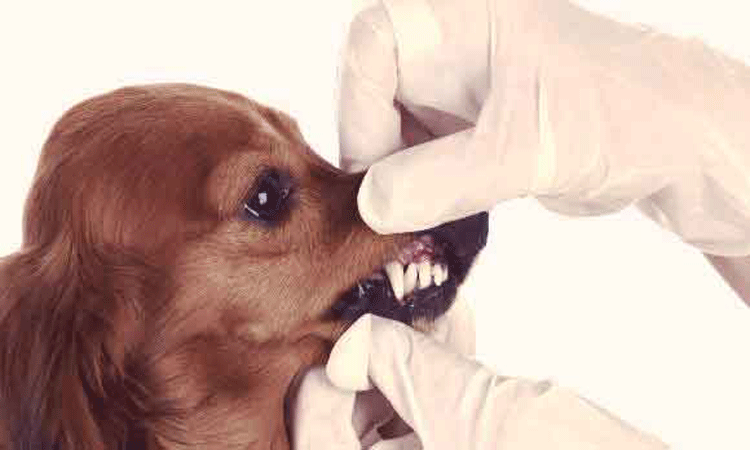Since a majority of dog owners never inspect the inside of their dog’s mouths, they would be horrified to know that their beloved pet dogs are very likely to be suffering from some sort of dental disease or the other. Pet owners are usually quite surprised when during a routine visit to a vet, it is brought to their attention that their dog’s teeth are sore, loose or rotting or that the gums are infected. Because the dog’s mouth is moist and warm and has all the nutrients that organisms require, it acts as an ideal incubator for bacteria. While many of the bacteria are perfectly normal, things can get out of tilt once tartar and plaque form on the teeth. Your dog can be heading for really big trouble if there is a proliferation of pathogenic organisms inside the mouth.
Dental Care Has a Huge Impact
While foul breath can definitely indicate a problem, dog owners need to be aware that poor dental health can manifest itself in a number of ways that can seriously impact your dog’s wellbeing and longevity. Your dog could be susceptible to diseases of the heart, kidney, and liver due to oral health issues. This happens because the toxins that are produced by the periodontal diseases can be absorbed directly into the bloodstream of the dog. The poisoned blood then reaches the brain, kidney, and liver causing infections that result in permanent organ damage that can also sometimes be even fatal. The infections are also extremely painful for your pet. By allowing your pet to be properly treated by the vet for periodontal disease and ensuring that your dog receives adequate and appropriate dental hygiene at home can make a huge difference to the quality of the life of your dog.
Canine Teeth Brushing
A Journal of Veterinary Dentistry study conducted in 1996 recommends that irrespective of your dog’s dietary regimen, daily brushing of the teeth goes a long way in ensuring dental hygiene. The best way of doing this is to get started with the dental care routine when the dog is very young so that he gets accustomed to it. You can ask your vet to not only teach you the correct and most effective ways of brushing your dog’s teeth but also get his recommendations on which brushes and toothpaste to use. It is important to remember not to use your household toothpaste as these produce a lot more foam and are not meant to be swallowed but rinsed out, which obviously your dog cannot do. Toothpaste developed especially for pets is enzymatic, which means that it is more effective in cleaning plaque as well as food debris. You can even get the toothpaste in chicken or beef flavors that your dog will love.
Brushing Techniques
When you start dental care at home, you need to exercise great care because this is unfamiliar territory for your dog and you run the risk of getting bitten. Start with a small quantity of toothpaste and allow your dog to smell it and encourage him to taste it showering heaps of praise in the process. Once you feel that the dog is comfortable and knows what’s coming, you can start to brush gently starting at the gum. Do not worry if at this stage you cannot clean the inside of the teeth as this is anyway kept clean by the saliva. Use a brush of an appropriate size or even use other cleaning tools like a fingertip brush if your dog refuses to cooperate with the toothbrush.
You can also give your dog chew toys and bones as these can keep the teeth clean but be sure to pick a size that suits your dog. For tartar control, there’s a large variety of treats and biscuits that your dog will really love to nibble on.
About Author: Susan Williams is a vet and a well-known animal conservation activist. Susan is a prolific blogger on various pet care and conservation issues. She has been associated with PrimpPlay, a leading grooming and pet care facility.


Be the first to comment on "Ensure a Healthier Life for Your Dog with Proper Dental Care"